
Szczecin Lagoon: A Hidden Gem of Tranquil Waters and Natural Beauty
Szczecin Lagoon, located in the north-western part of Poland, is a stunning natural lagoon known for its serene beauty and untouched landscapes. This enchanting destination is perfect for tourists looking to escape the hustle and bustle of city life and immerse themselves in nature. The lagoon's peaceful waters and picturesque surroundings make it an ideal spot for relaxation and outdoor activities. The area is rich in wildlife, making it a paradise for bird watchers and nature enthusiasts. The lagoon is home to a variety of bird species, and its tranquil environment provides excellent opportunities for bird watching and photography. Visitors can also explore the nearby forests and meadows, which are teeming with flora and fauna. Water sports enthusiasts will find plenty to do at Szczecin Lagoon. The calm waters are perfect for sailing, kayaking, and windsurfing. There are also several fishing spots around the lagoon, where anglers can try their luck at catching local fish species. For those who prefer a more leisurely pace, boat tours are available, offering a relaxing way to take in the stunning scenery. The small towns and villages surrounding the lagoon offer a glimpse into the local culture and history. Tourists can visit charming fishing villages, sample delicious local cuisine, and explore historical landmarks. The area is also known for its warm hospitality, making visitors feel right at home. Whether you're looking for adventure or relaxation, Szczecin Lagoon offers a perfect blend of both. Its natural beauty and tranquil atmosphere make it a must-visit destination for anyone traveling to Poland.
Local tips in Szczecin Lagoon
- Visit in spring or early autumn to enjoy pleasant weather and fewer crowds.
- Bring binoculars for bird watching; the lagoon is home to many unique species.
- Rent a bike to explore the scenic trails around the lagoon.
- Try local fish dishes at nearby restaurants; they are a specialty in the region.
- Consider taking a boat tour to fully appreciate the lagoon's beauty from the water.
Szczecin Lagoon: A Hidden Gem of Tranquil Waters and Natural Beauty
Szczecin Lagoon, located in the north-western part of Poland, is a stunning natural lagoon known for its serene beauty and untouched landscapes. This enchanting destination is perfect for tourists looking to escape the hustle and bustle of city life and immerse themselves in nature. The lagoon's peaceful waters and picturesque surroundings make it an ideal spot for relaxation and outdoor activities. The area is rich in wildlife, making it a paradise for bird watchers and nature enthusiasts. The lagoon is home to a variety of bird species, and its tranquil environment provides excellent opportunities for bird watching and photography. Visitors can also explore the nearby forests and meadows, which are teeming with flora and fauna. Water sports enthusiasts will find plenty to do at Szczecin Lagoon. The calm waters are perfect for sailing, kayaking, and windsurfing. There are also several fishing spots around the lagoon, where anglers can try their luck at catching local fish species. For those who prefer a more leisurely pace, boat tours are available, offering a relaxing way to take in the stunning scenery. The small towns and villages surrounding the lagoon offer a glimpse into the local culture and history. Tourists can visit charming fishing villages, sample delicious local cuisine, and explore historical landmarks. The area is also known for its warm hospitality, making visitors feel right at home. Whether you're looking for adventure or relaxation, Szczecin Lagoon offers a perfect blend of both. Its natural beauty and tranquil atmosphere make it a must-visit destination for anyone traveling to Poland.
When is the best time to go to Szczecin Lagoon?
Iconic landmarks you can’t miss
Wały Chrobrego
Experience the historical grandeur and breathtaking views at Wały Chrobrego, Szczecin's iconic riverside promenade.
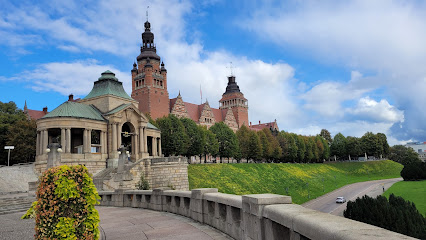
Galeria Kaskada
Experience shopping, dining, and entertainment at Galeria Kaskada, Szczecin's premier shopping destination for tourists and locals alike.
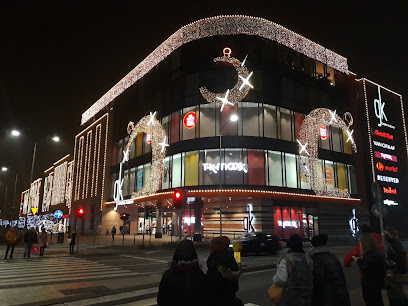
Pomeranian Dukes' Castle in Szczecin
Explore the Pomeranian Dukes' Castle in Szczecin, a captivating historical landmark rich in culture and stunning architecture.
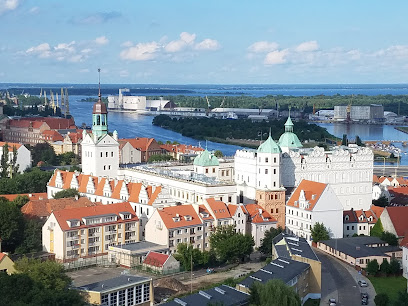
Plac Jasne Błonia im. Jana Pawła II
Explore the lush landscapes and cultural treasures of Plac Jasne Błonia im. Jana Pawła II, a serene park in Szczecin, perfect for relaxation and leisure.
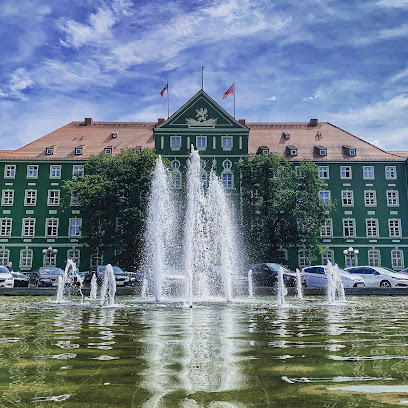
NOWY BROWAR SZCZECIN
Experience the best of Polish craft beer and cuisine at Nowy Browar Szczecin, a brewpub that brings the art of brewing to life.
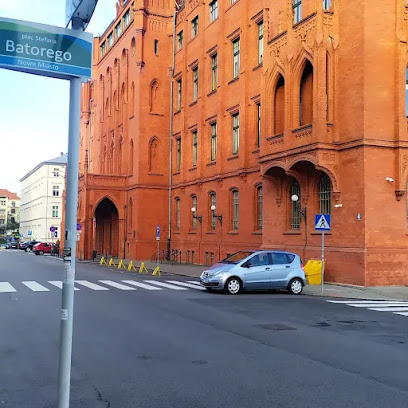
Kasprowicz Park
Explore the lush landscapes and tranquil beauty of Kasprowicz Park, a premier destination for relaxation and outdoor activities in Szczecin.
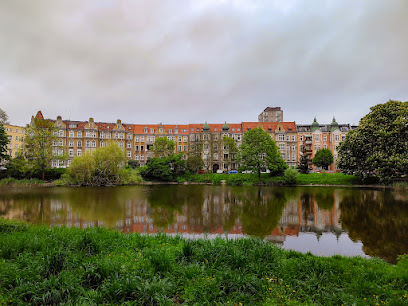
Harbour Gate
Explore the historical brilliance of Harbour Gate in Szczecin, a key landmark showcasing the city's maritime heritage and stunning architecture.
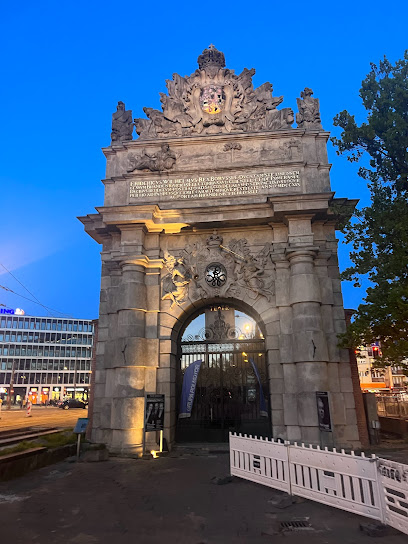
Szczecin Boulevards
Experience the scenic beauty and vibrant culture of Szczecin Boulevards along the Oder River, a perfect retreat for tourists seeking tranquility and local charm.
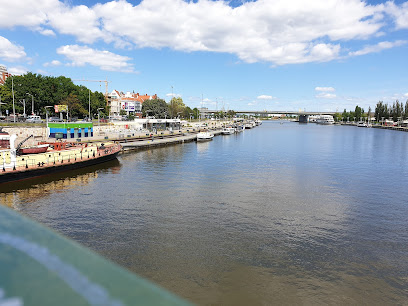
Colorado
Experience the culinary delights of Szczecin at Colorado, a premier steakhouse offering traditional Polish flavors in a warm, inviting atmosphere.
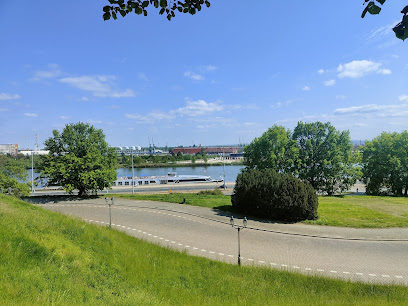
Karlowicz Philharmonic
Experience the captivating blend of modern architecture and classical music at Karlowicz Philharmonic in Szczecin, a cultural gem for every visitor.
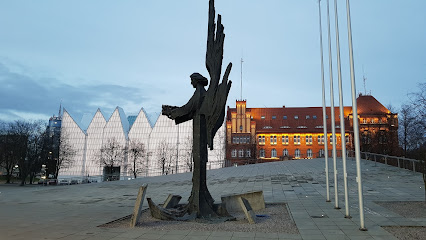
Karczma Polska
Experience the rich flavors of Poland at Karczma Polska in Szczecin, a family-friendly restaurant serving authentic Polish dishes in a warm ambiance.
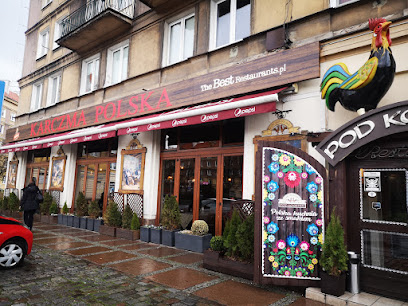
Museum of Technology and Transportation - Art Depot in Szczecin
Explore the rich history of technology and transportation at Szczecin's Museum of Technology and Transportation - Art Depot, a blend of innovation and artistry.
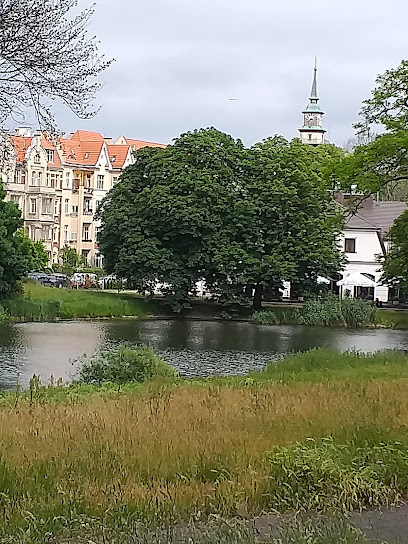
Archcathedral Basilica of St. James the Apostle
Explore the breathtaking Archcathedral Basilica of St. James the Apostle in Szczecin, a stunning blend of Gothic and Baroque architecture steeped in history.
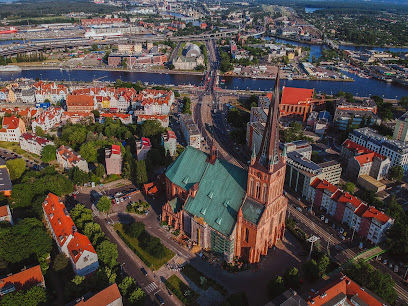
Różanka Rose Garden
Explore the enchanting Różanka Rose Garden in Szczecin, where thousands of roses bloom in a serene botanical paradise perfect for leisurely strolls and relaxation.
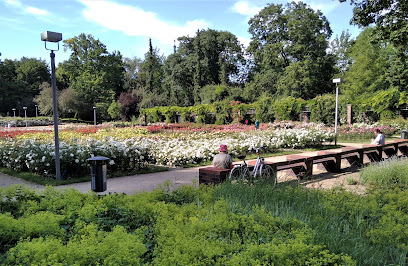
Ziemniak i Spółka
Discover the delicious world of potatoes at Ziemniak i Spółka, a family-friendly restaurant in Szczecin that serves comfort food with a creative twist.
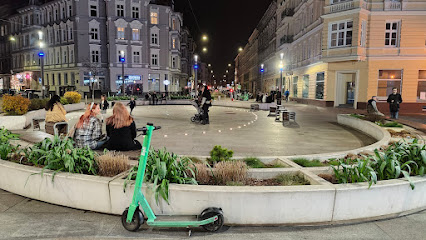
Unmissable attractions to see
Kasprowicz Park
Explore the serene beauty of Kasprowicz Park in Szczecin, a perfect blend of nature, art, and family-friendly activities.
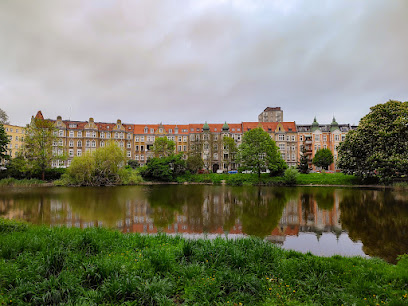
Szczecin Boulevards
Discover the beauty of Szczecin Boulevards, a scenic riverside escape filled with culture, history, and vibrant local life.
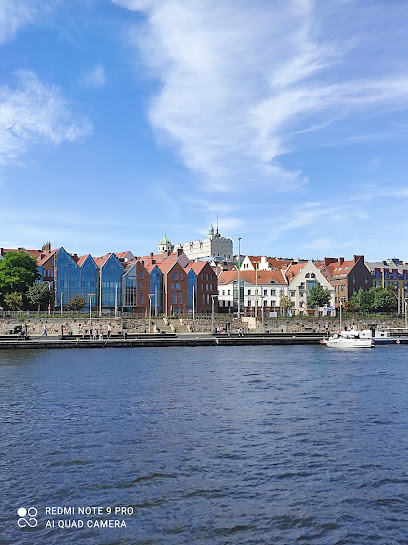
Różanka Rose Garden
Discover the enchanting Różanka Rose Garden in Szczecin, a floral paradise perfect for leisurely strolls, romantic outings, and serene escapes into nature.
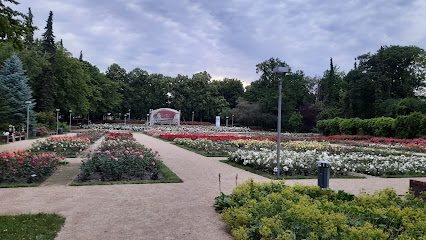
Solidarity Square
Explore Solidarity Square in Szczecin, a picturesque city park blending history, culture, and leisure for an unforgettable visit.
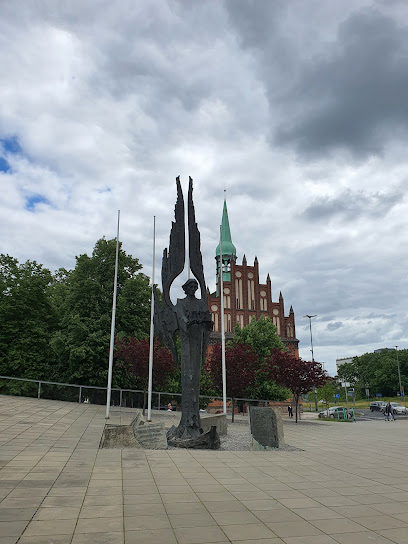
Underground Stettin Routes
Uncover the hidden history and vibrant art of Szczecin at the Underground Stettin Routes, a unique tourist attraction beneath the city.
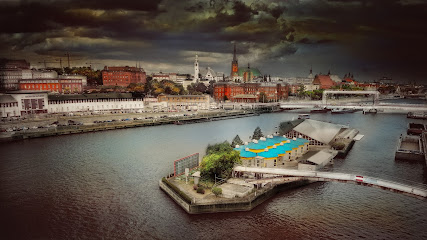
Memorial of the Poles' Feat
Explore the Memorial of the Poles' Feat in Szczecin, a poignant tribute to Polish courage and resilience, set in a beautifully landscaped area.
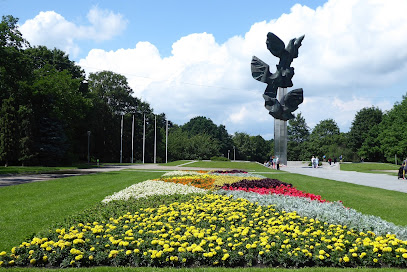
Royal Gate
Discover the Royal Gate, a historical landmark in Szczecin that offers a glimpse into Poland's regal past and stunning architectural beauty.
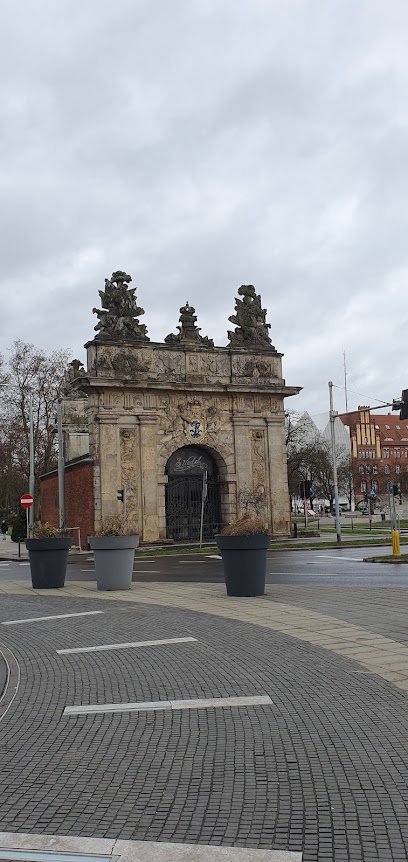
Park Majowe
Explore the lush landscapes and tranquil beauty of Park Majowe, a serene urban oasis in Szczecin perfect for relaxation and outdoor fun.
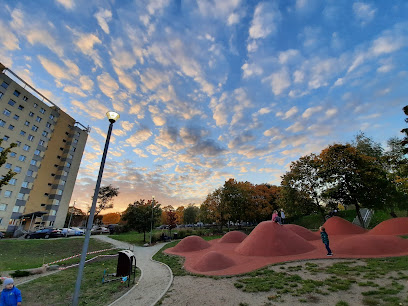
The National Museum in Szczecin
Explore the vibrant history and diverse art collections at The National Museum in Szczecin, a cultural gem on the banks of the Odra River.
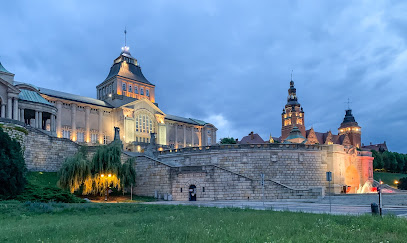
Szczecin Harbour
Experience the breathtaking beauty and rich maritime history of Szczecin Harbour, a must-visit destination for every traveler.
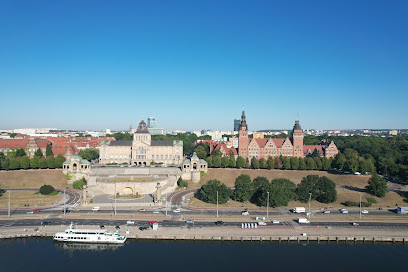
Szmaragdowe Lake
Explore the stunning Szmaragdowe Lake in Szczecin, a serene retreat with emerald waters and beautiful scenery, perfect for nature lovers and relaxation.
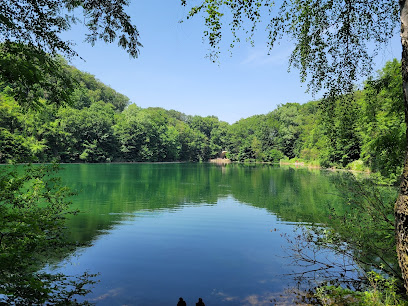
Sailors' Avenue
Explore the scenic Sailors' Avenue in Nowe Warpno, a charming promenade by the Szczecin Lagoon, rich in maritime history and breathtaking views.
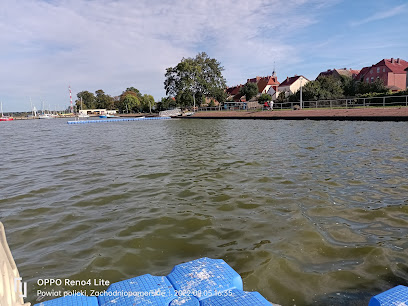
Tramwaj Wodny w Szczecinie, Bulwar Piastowski - Nabrzeże Starówka
Experience the enchanting Tramwaj Wodny in Szczecin for breathtaking views and a unique journey through maritime history on the scenic Bulwar Piastowski.
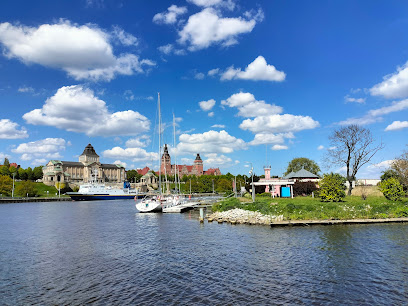
Szczecin Sundial
Experience the beauty of time at the Szczecin Sundial, a stunning blend of art and functionality in the heart of Szczecin, Poland.
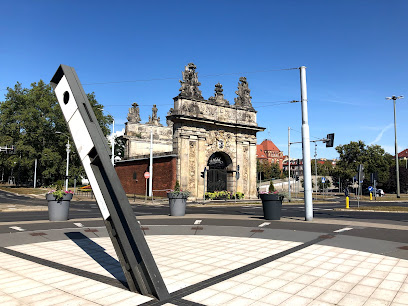
Dąb Wolinian
Discover the beauty of Dąb Wolinian, a wildlife refuge in Lubin, Poland, where nature thrives and serenity awaits every visitor.
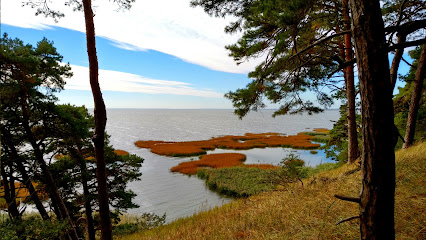
Essential places to dine
Colorado
Experience exquisite steaks and authentic Polish cuisine at Colorado, Szczecin's top-rated steakhouse offering an unforgettable dining experience.
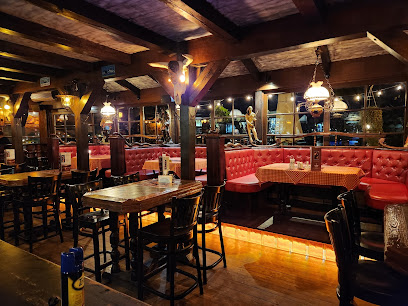
Karczma Polska
Experience authentic Polish cuisine at Karczma Polska in Szczecin - where tradition meets flavor in a warm family setting.
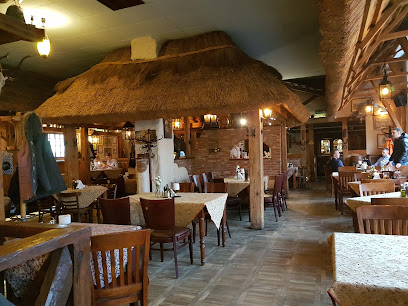
Columbus Restaurant
Experience culinary excellence at Columbus Restaurant in Szczecin with exquisite American, Italian & Polish dishes.
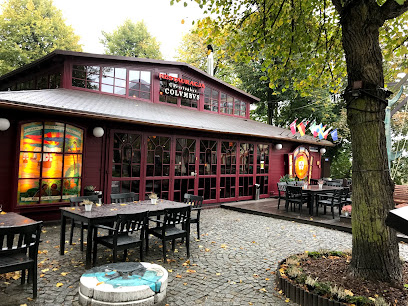
Bro Burgers
Discover the best gourmet burgers in Szczecin at Bro Burgers - where quality meets flavor in every bite.
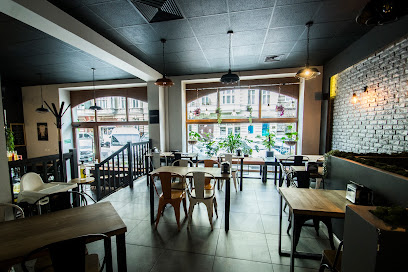
Trattoria Toscana
Discover the essence of Italy at Trattoria Toscana in Szczecin - where every meal is a celebration of flavor and tradition.
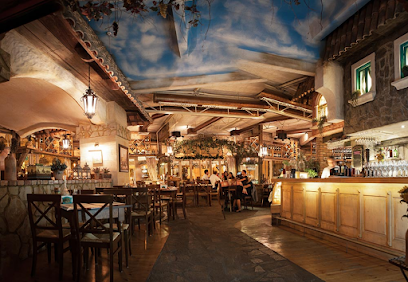
Bajgle Króla Jana
Discover delicious bagels and artisanal coffee at Bajgle Króla Jana - the ultimate breakfast destination in Szczecin.
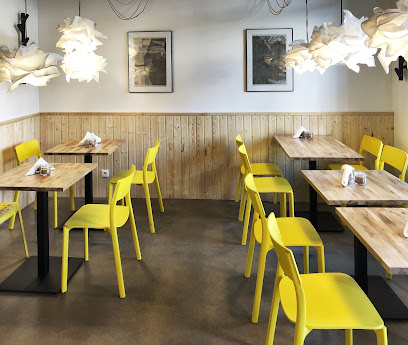
Brasileirinho Brazylijska Kuchnia & Bar
Discover authentic Brazilian cuisine in Szczecin at Brasileirinho - where vibrant flavors meet warm hospitality.
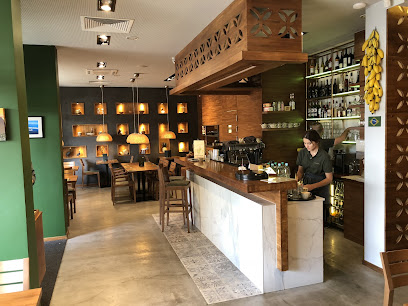
Paprykarz Fish Market
Experience the rich flavors of Poland at Paprykarz Fish Market - your go-to destination for fresh and delicious seafood in Szczecin.
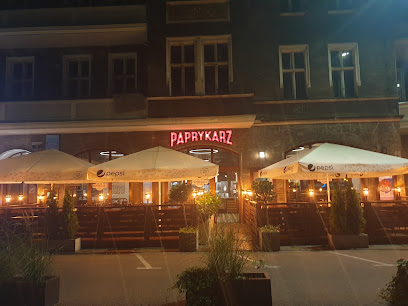
Buddha Thai & Fusion Restaurant
Experience authentic Thai flavors in Szczecin at Buddha Thai & Fusion Restaurant - where culinary artistry meets modern dining.
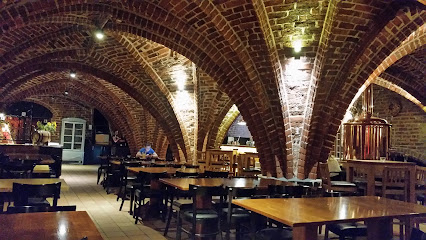
Radecki
Experience authentic Italian cuisine at Radecki in Szczecin – where every dish tells a story of flavor and tradition.
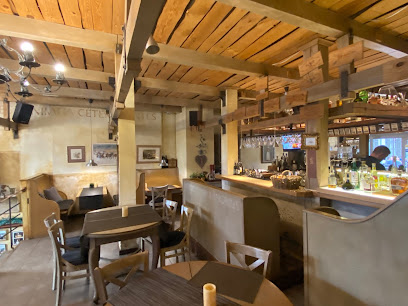
Pizza Pasta i Basta
Discover authentic Italian flavors at Pizza Pasta i Basta in Szczecin – where every dish tells a story of Italy's culinary heritage.

Restauracja Spiżarnia Szczecińska • Kuchnia polska
Experience authentic Polish cuisine in a cozy setting at Restauracja Spiżarnia Szczecińska in Szczecin.
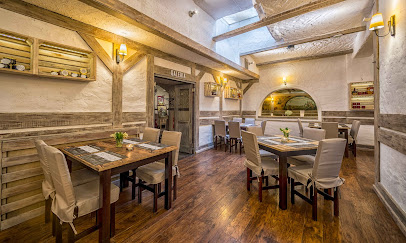
Wyszak Family Brewery
Experience authentic Polish cuisine and handcrafted beers at Wyszak Family Brewery in Szczecin - where tradition meets flavor.
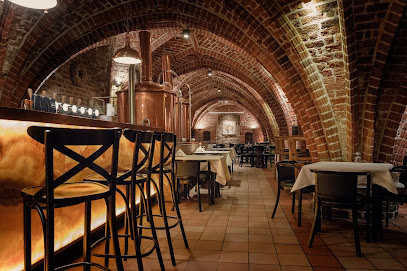
Sowa Restaurant
Discover the heart of Polish cuisine at Sowa Restaurant in Szczecin—where tradition meets modern dining.
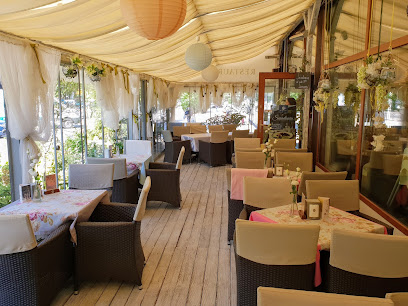
Bananowa Szklarnia
Experience tropical bliss at Bananowa Szklarnia - a unique restaurant in Szczecin offering vibrant decor and delicious cuisine.
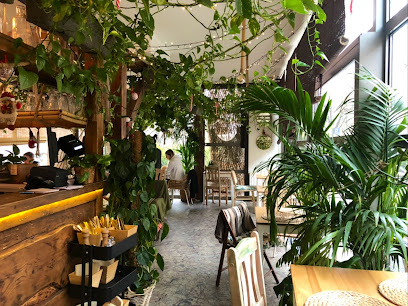
Markets, malls and hidden boutiques
Galaxy Centrum
Discover the ultimate shopping experience at Galaxy Centrum in Szczecin, where fashion, dining, and fun converge in a vibrant atmosphere.
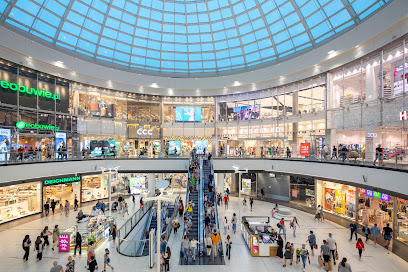
Galeria Kaskada
Explore Szczecin's Galeria Kaskada: A dynamic shopping hub with fashion, food, and fun for every traveler.
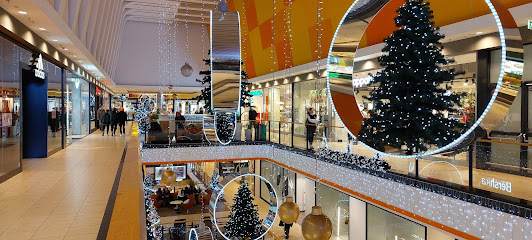
Pomeranian Dukes' Castle in Szczecin
Explore the Pomeranian Dukes' Castle in Szczecin, a historic landmark blending rich heritage with vibrant cultural events and stunning architecture.
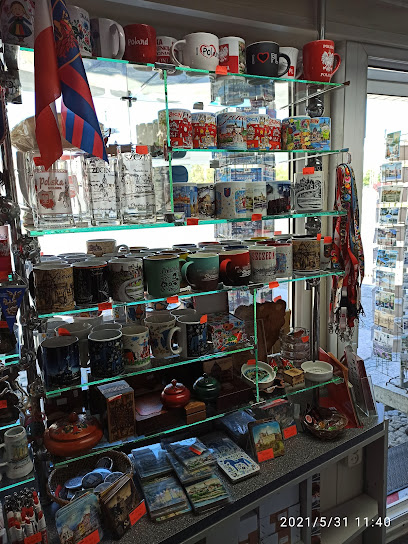
Outlet Park Szczecin
Discover unbeatable deals and a wide range of brands at Outlet Park Szczecin, your ultimate shopping destination in Poland.
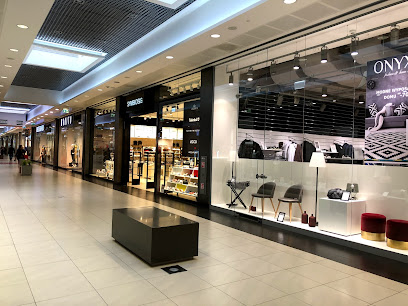
OMNI Molo
Discover OMNI Molo, Szczecin's ultimate shopping destination, featuring diverse shops, tasty eateries, and family-friendly entertainment options.
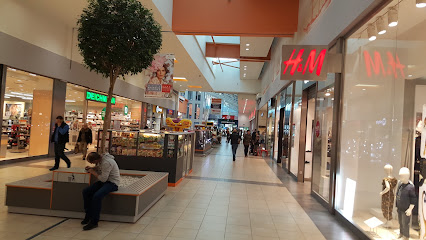
CH Ster
Discover shopping bliss at CH Ster in Szczecin, where fashion meets food and entertainment in a modern mall experience.
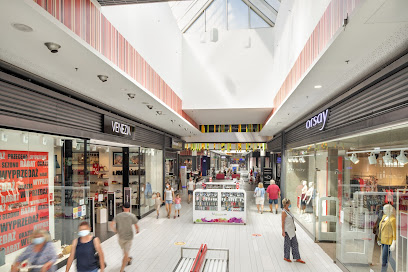
Manhattan Marketplace
Experience the flavors and culture of Szczecin at the bustling Manhattan Marketplace, a vibrant hub for fresh produce and artisanal goods.
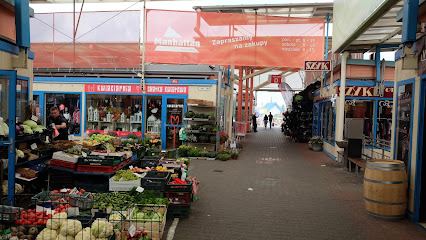
Galeria Gryf
Explore Galeria Gryf in Szczecin, a vibrant shopping mall featuring diverse shops, delicious dining options, and family-friendly entertainment.
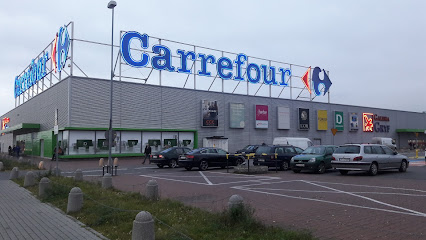
HIPPER.pl
Discover a wide range of home improvement, garden supplies, and outdoor furniture at HIPPER.pl in Świnoujście, the ultimate destination for DIY enthusiasts.
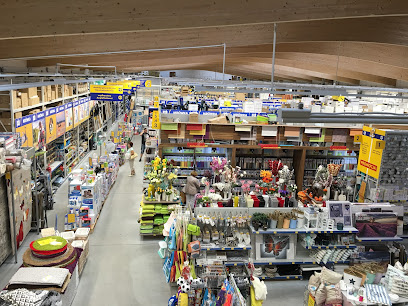
Empik
Explore Empik in Świnoujście for unique gifts, captivating books, and delightful stationery that embody Polish creativity and culture.
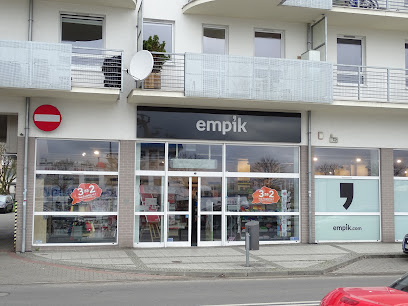
Travel Free Świnoujście/Garz
Explore unique local products and delightful souvenirs at Travel Free Świnoujście, your perfect shopping destination in this charming coastal town.
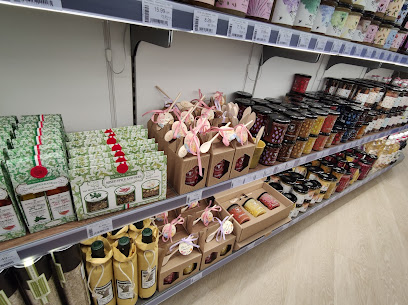
Souvenirs from Szczecin
Explore the heart of Szczecin with unique souvenirs that capture the essence of Polish culture and craftsmanship, all in one delightful store.
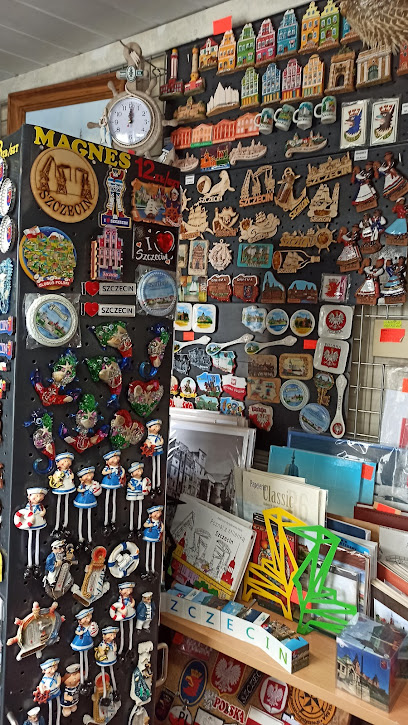
Strand Bellin
Discover the beauty of Strand Bellin, a serene beach in Ueckermünde, perfect for sunbathing, swimming, and creating unforgettable memories.
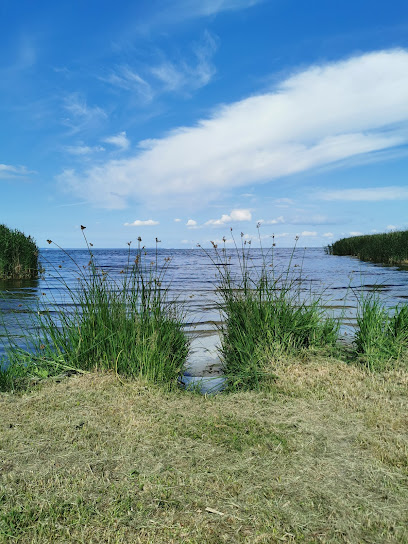
TEDi GmbH & Co. KG
Explore TEDi in Ueckermünde for a wide range of affordable home goods and unique souvenirs to enrich your travel experience.

Haffgeflüster
Explore Haffgeflüster, a charming souvenir store in Ueckermünde, where unique local treasures await to capture your travel memories.
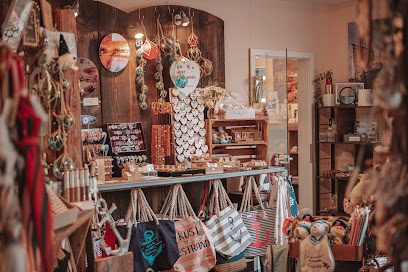
Essential bars & hidden hideouts
NOWY BROWAR SZCZECIN
Experience the vibrant craft beer scene at Nowy Browar Szczecin, where exceptional brews and delicious cuisine await every visitor.
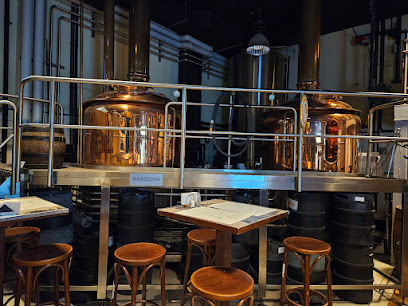
Bar Mleczny Turysta
Discover the flavors of Poland at Bar Mleczny Turysta, a cozy bistro in Szczecin offering delicious, affordable traditional dishes.
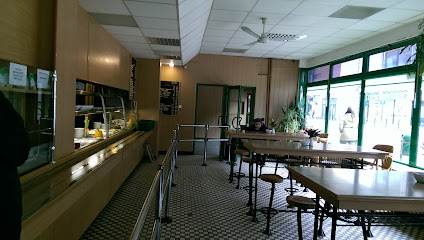
Ceglana
Experience the authentic taste of Polish cuisine at Ceglana Bistro in Szczecin, where tradition meets modern dining in a cozy atmosphere.
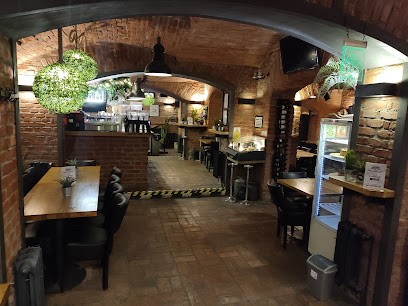
17 Steps Cocktail Bar
Discover the vibrant nightlife of Szczecin at 17 Steps Cocktail Bar, where expertly crafted cocktails meet a stunning atmosphere.
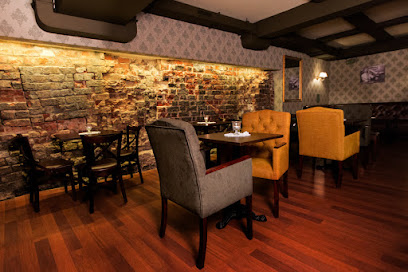
Irish Pub Dublin
Experience authentic Irish cuisine and vibrant nightlife at Irish Pub Dublin, a must-visit gastropub in Szczecin, Poland.
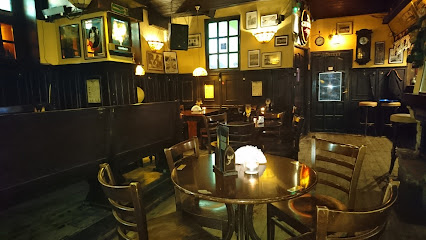
Český film
Experience the vibrant atmosphere of Český Film Brewpub in Szczecin, where craft beer meets delicious local cuisine.
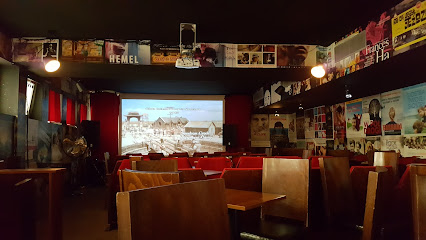
Taverna Cutty Sark
Experience the cozy charm of Taverna Cutty Sark, a beloved pub in Szczecin, where local brews and a warm atmosphere await every visitor.
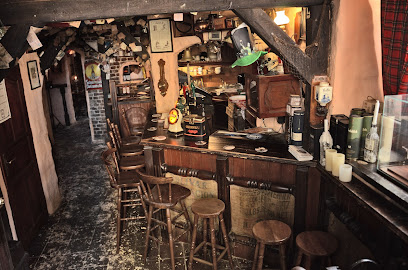
Browar Stara Komenda
Experience the best of Szczecin's brewing culture at Browar Stara Komenda, where craft beer and local cuisine come together in a cozy atmosphere.
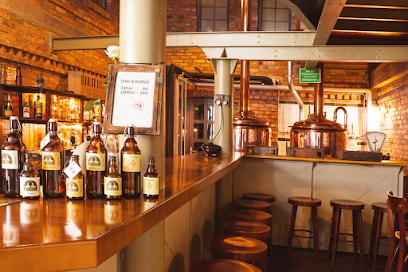
The Office - Craft Beer Pub
Discover the vibrant atmosphere of The Office - Craft Beer Pub in Szczecin, where craft beer meets local culture in a lively setting.
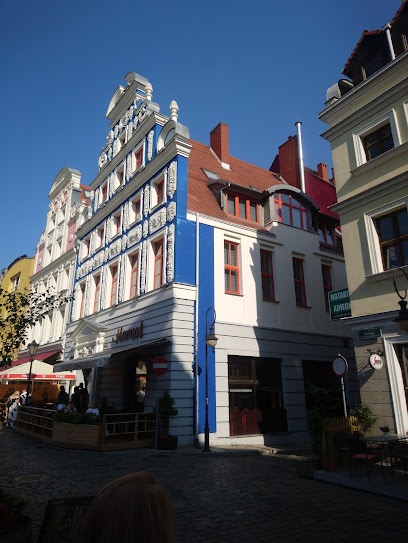
The Ptak i Pies Cocktail Bar
Explore the vibrant nightlife of Szczecin at The Ptak i Pies Cocktail Bar, where expertly crafted cocktails meet a cozy lounge atmosphere.
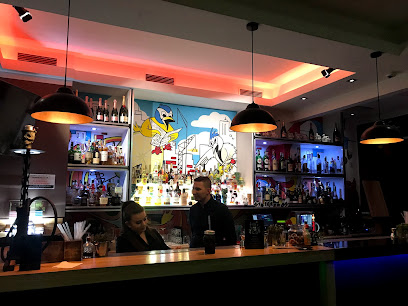
Place Cocktail Bar
Discover the vibrant atmosphere of Place Cocktail Bar in Międzyzdroje, where expertly crafted cocktails meet stunning seaside views.
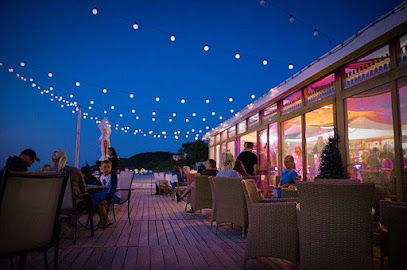
Piwnica Kany
Discover the essence of Polish brewing and cuisine at Piwnica Kany, a charming brewpub in Szczecin that offers a unique cultural experience.
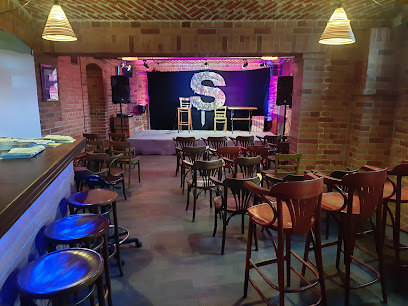
Patio Club
Discover Szczecin's nightlife at Patio Club, where great drinks, lively music, and an energetic crowd create unforgettable nights.
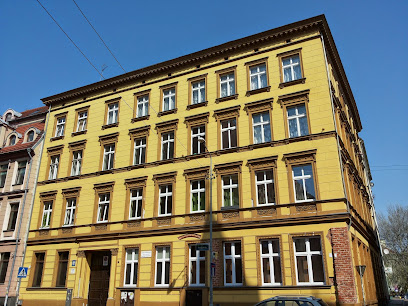
Bar Fajrant
Experience vibrant nightlife and a welcoming atmosphere at Bar Fajrant, Świnoujście's top bar with a lovely beer garden.
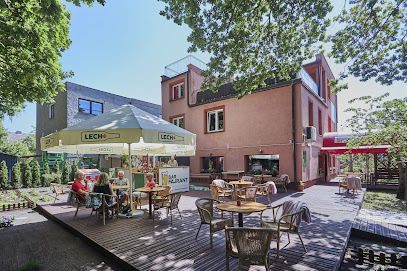
Copernicus Club
Discover the lively atmosphere of Copernicus Club, a premier lounge and nightclub in Szczecin, perfect for cocktails and dancing the night away.
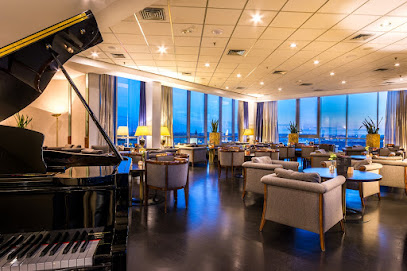
Local Phrases about Szczecin Lagoon
-
- HelloCześć
[cheshch] - GoodbyeDo widzenia
[do veedzenia] - YesTak
[tahk] - NoNie
[nye] - Please/You're welcomeProszę
[proshe] - Thank youDziękuję
[jyen-koo-yeh] - Excuse me/SorryPrzepraszam
[pshe-prah-sham] - How are you?Jak się masz?
[yahk sheh mahsh] - Fine. And you?Dobrze. A ty?
[dohb-zheh ah tih] - Do you speak English?Czy mówisz po angielsku?
[chi moovish poh ahn-gyehl-skoo] - I don't understandNie rozumiem
[nye roh-zoo-myem]
- HelloCześć
-
- I'd like to see the menu, pleaseChciałbym zobaczyć menu, proszę
[h-chyahw-bim zoh-bah-chich meh-noo, pro-sheh] - I don't eat meatNie jem mięsa
[nye yem myen-sah] - Cheers!Na zdrowie!
[nah zdroh-vee-eh] - I would like to pay, pleaseChciałbym zapłacić, proszę
[h-chyahw-bim zah-pla-cheech, pro-sheh]
- I'd like to see the menu, pleaseChciałbym zobaczyć menu, proszę
-
- Help!Pomocy!
[poh-mo-tsih] - Go away!Idź sobie!
[eedge shoh-bee-eh] - Call the Police!Zadzwoń po policję!
[zahdz-von po po-lit-syeh] - Call a doctor!Zadzwoń po lekarza!
[zahdz-von po leh-kar-zah] - I'm lostZgubiłem się
[zgoo-bee-wem sheh] - I'm illJestem chory
[yes-tem hoh-rih]
- Help!Pomocy!
-
- I'd like to buy...Chciałbym kupić...
[h-chyahw-bim koo-peech] - I'm just lookingTylko się rozglądam
[tih-koh shcheh rohz-gwah-dam] - How much is it?Ile to kosztuje?
[ee-leh toh kohs-too-yeh] - That's too expensiveTo zbyt drogie
[toh zbit droh-geh] - Can you lower the price?Czy możesz obniżyć cenę?
[chi moo-zhesh ohb-nee-zhich cheh-neh]
- I'd like to buy...Chciałbym kupić...
-
- What time is it?Która godzina?
[ktoo-rah goh-dzee-nah] - It's one o'clockJest pierwsza
[yesst pyer-vshah] - Half past (10)Pół do dziesiątej
[poo doh dzyeh-shoon-teh] - MorningRano
[rah-noh] - AfternoonPopołudnie
[poh-poo-wood-nyeh] - EveningWieczór
[vyeh-choor] - YesterdayWczoraj
[v-choh-rye] - TodayDzisiaj
[dzyee-say] - TomorrowJutro
[yoo-troh] - 1Jeden
[yeh-den] - 2Dwa
[dvah] - 3Trzy
[tshih] - 4Cztery
[ch-teh-rih] - 5Pięć
[pyench] - 6Sześć
[sheshch] - 7Siedem
[shye-dehm] - 8Osiem
[oh-shyem] - 9Dziewięć
[dzyev-yench] - 10Dziesięć
[dzye-shyench]
- What time is it?Która godzina?
-
- Where's a/the...?Gdzie jest...?
[gdzyeh yest] - What's the address?Jaki jest adres?
[yah-ki yest ah-drehs] - Can you show me (on the map)?Czy możesz mi pokazać (na mapie)?
[chi moo-zhesh mee poh-kah-zahch (nah mah-pee-eh)] - When's the next (bus)?Kiedy jest następny (autobus)?
[kyeh-deh yest nah-stehp-neh (ow-toh-boos)] - A ticket (to ....)Bilet (do ....)
[byeh-let (doh)]
- Where's a/the...?Gdzie jest...?
History of Szczecin Lagoon
-
Szczecin Lagoon, known as Zalew Szczeciński in Polish, has been a significant geographic feature since ancient times. It was originally inhabited by Slavic tribes who used the lagoon for fishing, agriculture, and transportation. Archeological finds suggest that the area around the lagoon has been settled since at least the Bronze Age.
-
During the medieval period, the lagoon and surrounding areas were part of the Duchy of Pomerania. This region was a vital trade route due to its access to the Baltic Sea. The lagoon's waters facilitated trade and communication between coastal settlements, contributing to the economic and political development of the Pomeranian duchies.
-
In the 13th and 14th centuries, Szczecin Lagoon became an important part of the Hanseatic League, a powerful economic and defensive alliance of merchant guilds and market towns in Northwestern and Central Europe. Szczecin, the principal city by the lagoon, thrived due to its strategic location, becoming a hub of commerce and maritime trade.
-
The 17th and 18th centuries saw the lagoon and surrounding territories change hands multiple times between Sweden and Prussia. The Treaty of Westphalia in 1648 awarded the region to Sweden, but it was later ceded to Prussia in the early 18th century. These changes in control influenced the cultural and architectural landscape of the area.
-
During World War II, Szczecin Lagoon was strategically significant for both Nazi Germany and the Allied forces. The lagoon's shipyards and ports were heavily utilized and subsequently targeted in bombing raids. Following the war, the region became part of Poland as borders were redrawn, leading to significant demographic and cultural shifts.
-
In the post-war period, Szczecin Lagoon saw substantial development in terms of infrastructure and tourism. Efforts were made to revive the local economy through the fishing industry and by promoting the lagoon as a tourist destination. Today, the lagoon is known for its scenic beauty, recreational activities, and its historical significance, drawing visitors from around the world.
-
The area around Szczecin Lagoon is rich in cultural heritage, with numerous traditional festivals and events held throughout the year. The annual 'Days of the Sea' festival in Szczecin celebrates the maritime traditions of the region, featuring parades, concerts, and naval displays. Local folklore and crafts are also prominently showcased in various cultural events.
Szczecin Lagoon Essentials
-
Szczecin Lagoon is located in northwestern Poland, near the German border. The nearest major city is Szczecin, which has a well-connected railway station. The closest international airport is Szczecin-Goleniów 'Solidarity' Airport (SZZ), approximately 50 kilometers away. From the airport, you can take a taxi, rental car, or shuttle service to reach the lagoon. Alternatively, you can fly into Berlin's airports (Tegel or Schönefeld) and take a train or drive to Szczecin, which is about 150 kilometers away.
-
Once you arrive, getting around Szczecin Lagoon is straightforward. Local buses and regional trains connect the various towns and villages around the lagoon. Taxis are readily available but can be expensive for longer distances. Renting a car is a convenient option for exploring the area at your own pace. Biking is also popular, with several scenic bike paths available.
-
The official currency in Poland is the Polish Zloty (PLN). Credit and debit cards are widely accepted in hotels, restaurants, and shops. However, it is advisable to carry some cash, especially in smaller villages and for smaller transactions. ATMs are available in most towns around the lagoon, and currency exchange offices can be found in major tourist areas.
-
Szczecin Lagoon is generally a safe destination for tourists. However, standard safety precautions should be taken. Avoid walking alone late at night in unfamiliar areas and keep an eye on your belongings in crowded places. Although there are no specific high-crime areas targeting tourists, it is always best to stay vigilant and aware of your surroundings.
-
In case of emergency, dial 112 for immediate assistance. The local police station and medical facilities are available in the towns around the lagoon. It is recommended to have travel insurance that covers medical emergencies. For minor health issues, there are pharmacies in most towns where you can purchase over-the-counter medications.
-
Fashion: Do dress modestly, especially when visiting religious sites. Avoid wearing revealing clothing. Religion: Do respect local customs and traditions. Always cover your head when entering churches. Public Transport: Do be respectful and give up your seat to elderly passengers. Don't eat or drink on public transport. Greetings: Do greet people with a handshake. A simple 'Dzień dobry' (Good day) is polite and appreciated. Eating & Drinking: Do try local delicacies and accept food offerings graciously. Don’t refuse hospitality, as it is considered impolite.
-
To experience Szczecin Lagoon like a local, visit the local markets where you can buy fresh produce and traditional Polish goods. Engage with locals, as they are often friendly and willing to share stories about the area’s history and culture. Don’t miss visiting the historic towns of Wolin and Stepnica. For a unique experience, take a boat tour of the lagoon to enjoy its natural beauty and birdwatching opportunities.
Trending Landmarks in Szczecin Lagoon
-
Wały Chrobrego
-
Galeria Kaskada
-
Pomeranian Dukes' Castle in Szczecin
-
Plac Jasne Błonia im. Jana Pawła II
-
NOWY BROWAR SZCZECIN
-
Kasprowicz Park
-
Harbour Gate
-
Szczecin Boulevards
-
Colorado
-
Karlowicz Philharmonic
-
Karczma Polska
-
Museum of Technology and Transportation - Art Depot in Szczecin
-
Archcathedral Basilica of St. James the Apostle
-
Różanka Rose Garden
-
Ziemniak i Spółka
Nearby Cities to Szczecin Lagoon
-
Things To Do in Rostock
-
Things To Do in Berlin
-
Things To Do in Potsdam
-
Things To Do in Næstved
-
Things To Do in Køge
-
Things To Do in Lubeck
-
Things To Do in Copenhagen
-
Things To Do in Roskilde
-
Things To Do in Poznan
-
Things To Do in Slagelse
-
Things To Do in Hillerød
-
Things To Do in Helsingør
-
Things To Do in Bydgoszcz
-
Things To Do in Nyborg
-
Things To Do in Hamburg











